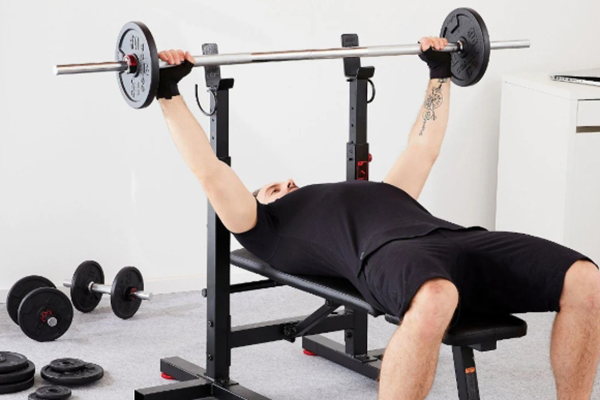The bench press is one of the most popular and widely used exercises in strength training, particularly for building upper body strength. It’s often seen as a benchmark for personal progress and gym performance. One common question lifters ask is, “Does body weight affect your bench press?” The short answer is yes—your body weight can significantly influence your bench press performance, but the relationship is complex and depends on several factors.
The Role of Body Weight in Strength
In general, heavier individuals tend to bench press more weight than lighter individuals. This is because muscle mass—which contributes directly to strength—often increases with body weight. However, it’s important to distinguish between muscle mass and body fat.
-
Muscle mass contributes positively to bench press strength. The more muscle you have, especially in the chest, shoulders, and triceps, the more force you can exert on the barbell.
-
Excess body fat, on the other hand, doesn’t directly help you lift more weight. However, in some cases, it can provide better leverage and stability during the bench press, especially for powerlifters in heavier weight classes.

Strength-to-Weight Ratio
A more meaningful measure of strength is not just how much you can lift, but how much you can lift relative to your body weight. This is called the strength-to-weight ratio. While heavier lifters may bench more total weight, lighter lifters often have higher strength-to-weight ratios.
For example:
-
A 220-pound lifter who benches 330 pounds has a 1.5x bodyweight bench press.
-
A 150-pound lifter who benches 270 pounds has an 1.8x bodyweight bench press.
This ratio becomes especially important in sports, fitness testing, and weight-class-based competitions, where efficiency and relative strength matter more than absolute numbers.
Leverage and Body Composition
Your body structure and composition also play a role in how your weight affects bench pressing:
-
Arm length: Lifters with shorter arms have a mechanical advantage in the bench press. They have a shorter range of motion, which can make pressing heavier weights easier.
-
Chest and torso thickness: A thicker torso shortens the bar path, which can improve pressing mechanics. Heavier lifters often have more mass in this area.
-
Fat distribution: Some argue that body fat adds to passive support and improves stability on the bench, but this is only marginal and not a substitute for muscle strength.
Training, Nutrition, and Progression
Your training regimen and nutritional habits directly influence how your body weight affects your performance:
-
Gaining weight through a structured bulk focused on increasing lean muscle can significantly improve your bench press.
-
Rapid weight gain that consists mainly of fat might not translate to much strength gain and can negatively affect mobility and endurance.
-
Losing weight (cutting) can lead to a temporary drop in strength if not managed carefully, especially if muscle mass is lost in the process.
Athletes who train specifically for performance often go through cycles of bulking and cutting to maximize strength while staying within a desired weight range.
Competitive Perspective
In powerlifting and strength sports, weight classes exist to create fairness. Lifters are often ranked not only by the total weight they lift but also by metrics like the Wilks Score or Dots Score, which adjust for body weight to compare lifters across different classes.
This reinforces the idea that raw strength is not the only measure of performance—how efficiently you move weight in relation to your size matters, too.
Conclusion
So, does weight affect your bench press? Absolutely. Your body weight—especially lean muscle mass—can have a significant impact on your bench press performance. However, the goal shouldn’t be just to gain weight indiscriminately. Instead, aim to build muscle, improve technique, and maintain a healthy strength-to-weight ratio.
Whether you’re a beginner or a competitive lifter, understanding how body weight influences strength can help you train smarter, set realistic goals, and maximize your progress over time.
Post time: 07-17-2025



